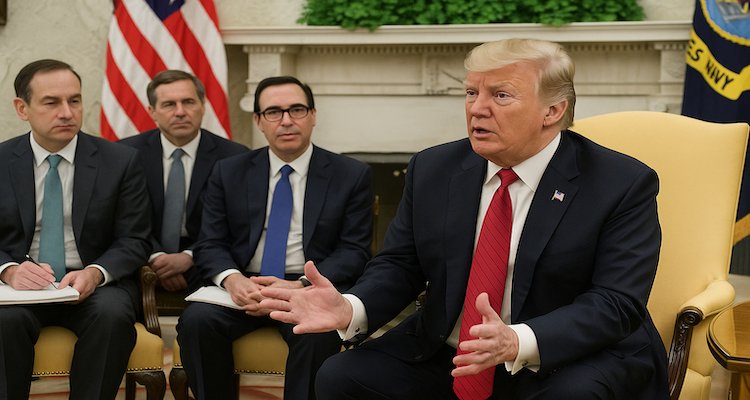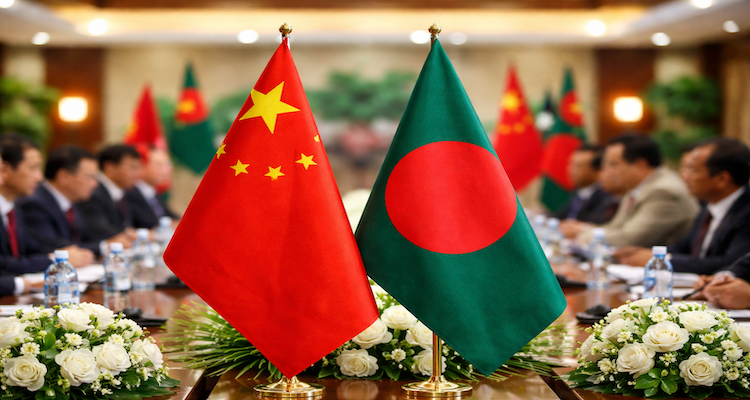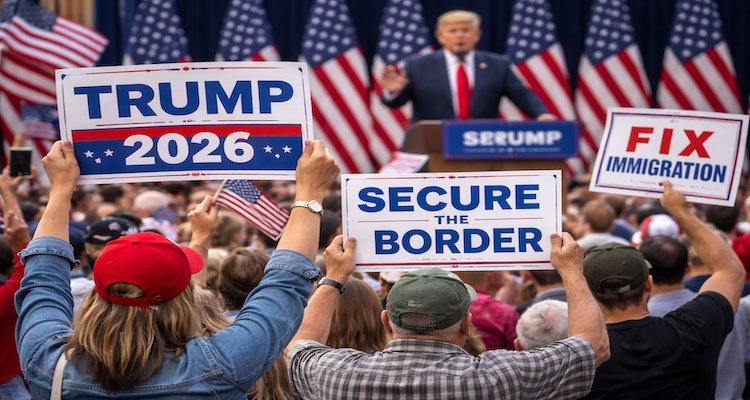U.S. and Switzerland Edge Toward Tariff-Cutting Trade Deal

Washington and Bern are in talks to lower the 39% tariff on Swiss exports to the U.S., signaling a potential breakthrough in trade relations between the two allies.
A Diplomatic Push to Ease Trade Strain
The United States and Switzerland are moving closer to a breakthrough trade deal that could sharply reduce the steep 39% tariff currently levied on Swiss exports to the American market. President Donald Trump confirmed ongoing negotiations on Monday, describing efforts to “get their tariffs a little bit lower,” while stopping short of confirming a specific new rate.
The talks represent a rare instance of bilateral diplomacy amid a broader U.S. trade overhaul, one that has rattled long-standing economic allies but now appears to be softening in tone toward the Swiss.
A Tariff Shock for a Trusted Ally
In August, the Trump administration imposed a sweeping 39% duty on Swiss imports, instantly making it one of the toughest penalties in Washington’s global trade campaign. The decision stunned Swiss businesses, for whom the U.S. ranks among the most vital export destinations for precision machinery, luxury watches, and world-renowned chocolate.
While the move was part of a broader effort to reset U.S. trade relationships worldwide, it also risked undermining ties with a country long regarded as one of America’s most stable and cooperative partners. Facing mounting pressure from Swiss manufacturers and exporters, Bern has since scrambled to negotiate a reprieve.
Negotiations Gain Momentum
Speaking from the Oval Office, Trump acknowledged the strain the tariffs had placed on Switzerland but emphasized the U.S.’s friendly intentions.
“We’re working on a deal to get their tariffs a little bit lower,” he said. “I haven’t set any number, but we’re going to be working on something to help Switzerland.”
Reports from Bloomberg indicate that discussions between the two nations are progressing swiftly. Citing anonymous sources familiar with the matter, the outlet suggested a possible agreement could materialize within two weeks, potentially reducing the tariff rate to around 15%.
However, officials in Bern have been cautious. A spokesperson for Switzerland’s Department of Economic Affairs told reporters that “talks are ongoing,” and declined to elaborate further, underscoring the sensitivity of the negotiations.
Expert Insight & Diplomatic Perspectives
Trade experts say the potential reduction reflects a pragmatic recalibration by Washington, which has faced criticism for its unpredictable trade policy under Trump.
“Switzerland has always been a model trade partner for the U.S., stable, transparent, and cooperative,” said one European trade analyst based in Geneva. “The current negotiations seem aimed at restoring balance after an overly harsh tariff shock.”
For Switzerland, which thrives on open markets and global trade stability, easing the tariff could mean renewed confidence for industries that have faced uncertainty since August. Swiss watchmakers, precision tool manufacturers, and chocolate producers all rely heavily on U.S. demand, and a prolonged tariff standoff could have ripple effects across the Alpine nation’s export-driven economy.
What the Deal Could Mean
If finalized, the deal could mark a modest but meaningful thaw in the Trump administration’s combative trade approach. A lowered tariff would not only bolster Swiss exports but also serve as a gesture of goodwill toward European partners who have grown wary of Washington’s unpredictable tariff strategy.
For U.S. consumers, the reduction could eventually translate into lower prices on imported Swiss goods, particularly luxury items such as watches and confections. Meanwhile, for Trump’s administration, it could be presented as another example of “renegotiated fairness” in global trade, positioning the U.S. as both firm and flexible in its dealings.
On the Swiss side, the move would likely be framed as a diplomatic victory, one that safeguards the nation’s access to one of its largest and most lucrative markets without escalating tensions.
A Careful Path Forward
As both sides navigate the final stages of negotiation, optimism is tempered by caution. Nothing has been signed yet, and sources close to the talks emphasize that even small shifts in U.S. trade policy can hinge on last-minute decisions from the White House.
Still, the tone of engagement marks a clear departure from the combative rhetoric of recent years. If Washington and Bern can finalize a tariff reduction, it could serve as a model for pragmatic diplomacy, showing that even in an era of trade wars, allies can still find common ground through negotiation and mutual respect.
ALSO READ: Boeing Workers Weigh Final Offer After Months-Long Strike









